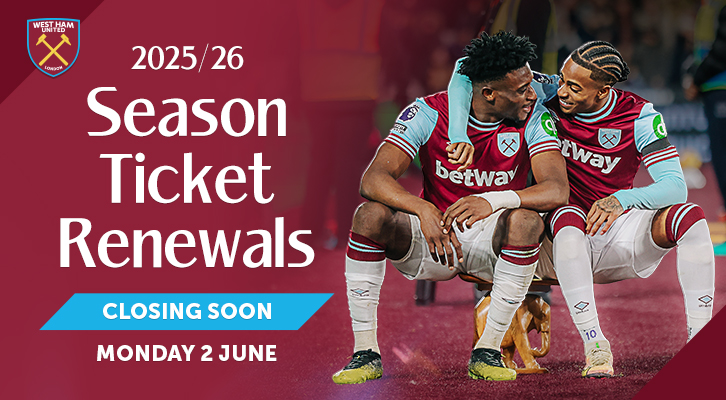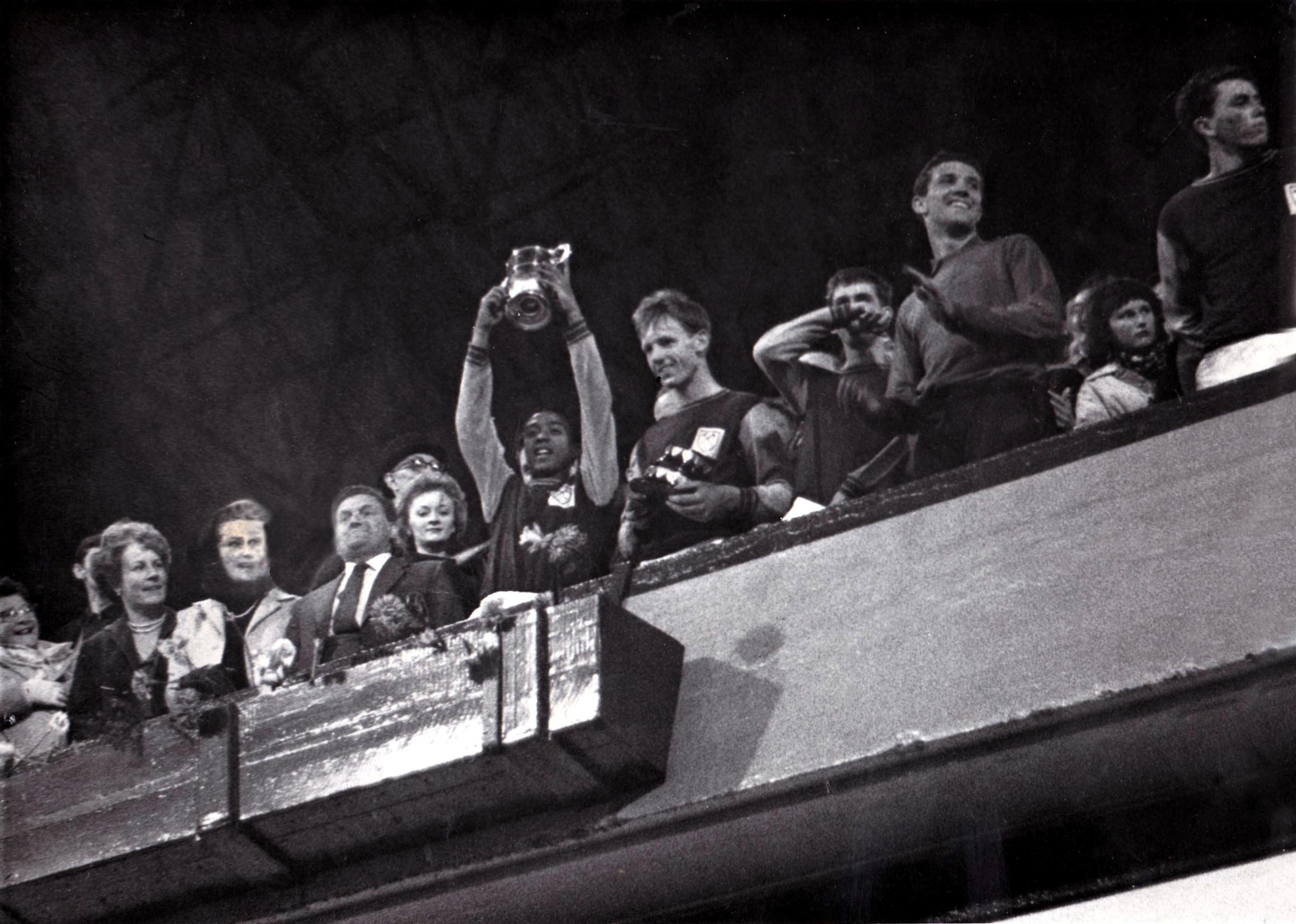The FA Youth Cup was inaugurated for the 1952/53 season, becoming the first national competition for academy sides at clubs great and small.
These days, over 400 teams enter annually, with junior sides hoping to go far enough to face a big-name opponent, and the Premier League clubs almost always fighting out in the final stages.
For the first five years, one club enjoyed total domination, with Manchester United winning all five, including an 8-2 aggregate win over West Ham United in 1956/57.
The Hammers featured in the final again in 1959, this time narrowly losing to Blackburn Rovers despite fielding a team that included teenagers Bobby Moore, Geoff Hurst, Jack Burkett and Eddie Bovington, who would all go on to win senior trophies in Claret and Blue a few years later.
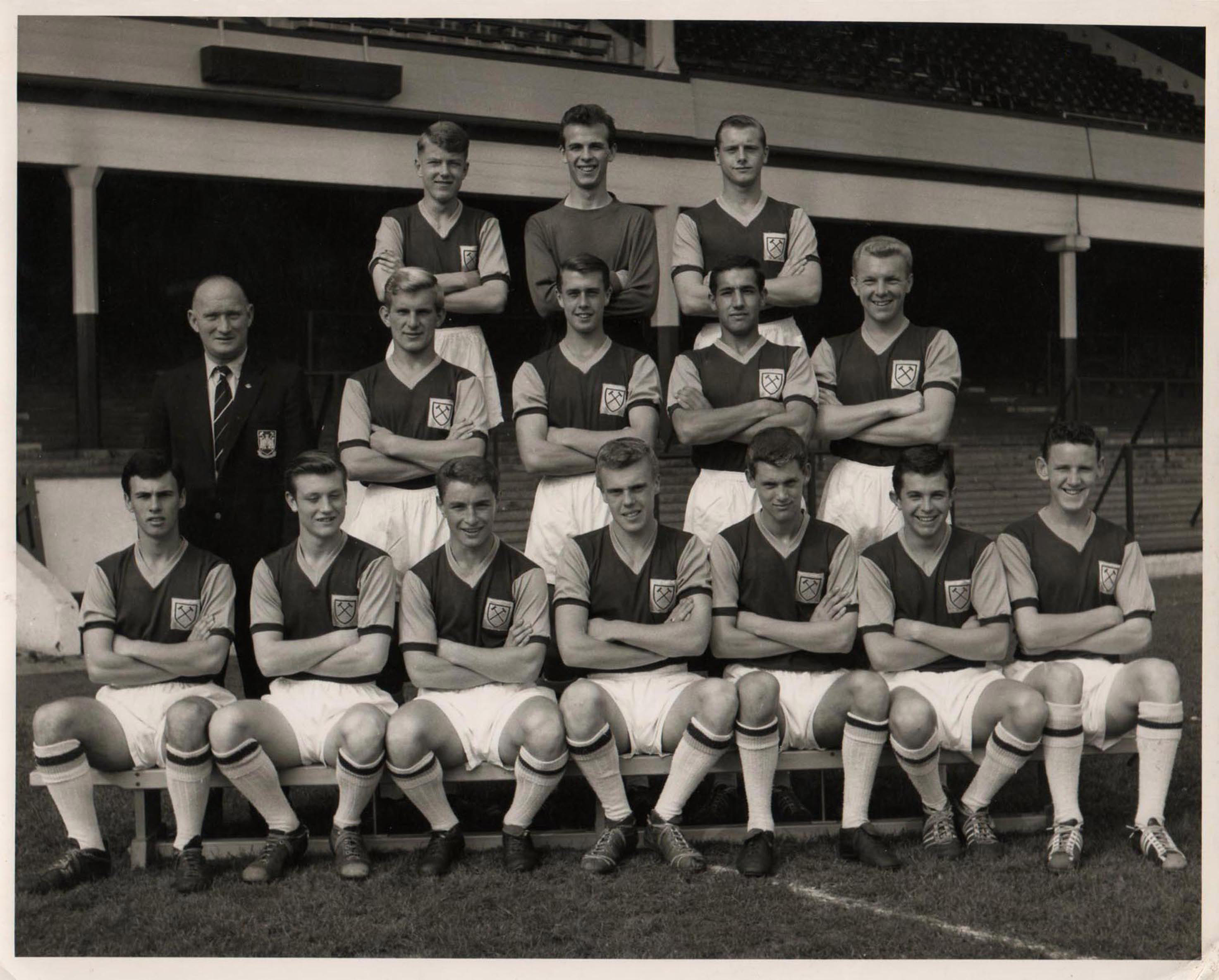
West Ham’s first triumph came at the third time of asking in 1963, but not before a series of extraordinary events.
The young Irons entered at the second-round stage and were drawn to play Brighton & Hove Albion at the Goldstone Ground in December 1962. It is worth recording the lineup at this stage as it would remain unchanged throughout the competition except for one change on one occasion – Colin Mackleworth, Dennis Burnett, Bill Kitchener, Trevor Dawkins, John Charles, Bobby Howe, Harry Redknapp, Peter Bennett, Martin Britt, John Sissons and John Dryden.
West Ham started the brighter and two goals from Dryden gave them an early advantage. Brighton missed a penalty, then pulled one back, before Sissons made it 3-1. Two further Brighton goals either side of half-time made it 3-3 and, despite frantic efforts from both teams, there was no further scoring and a replay was necessary.
The weather in early 1963 was atrocious, with the Football League programme decimated, and the replay was not played for two months, on 18 February. Despite the long delay, this time it proved to be a far easier passage for West Ham, with a Britt hat-trick and one goal each from Sissons, Dryden and Terry Archer - the one change mentioned - contributing to a resounding 6-1 victory.
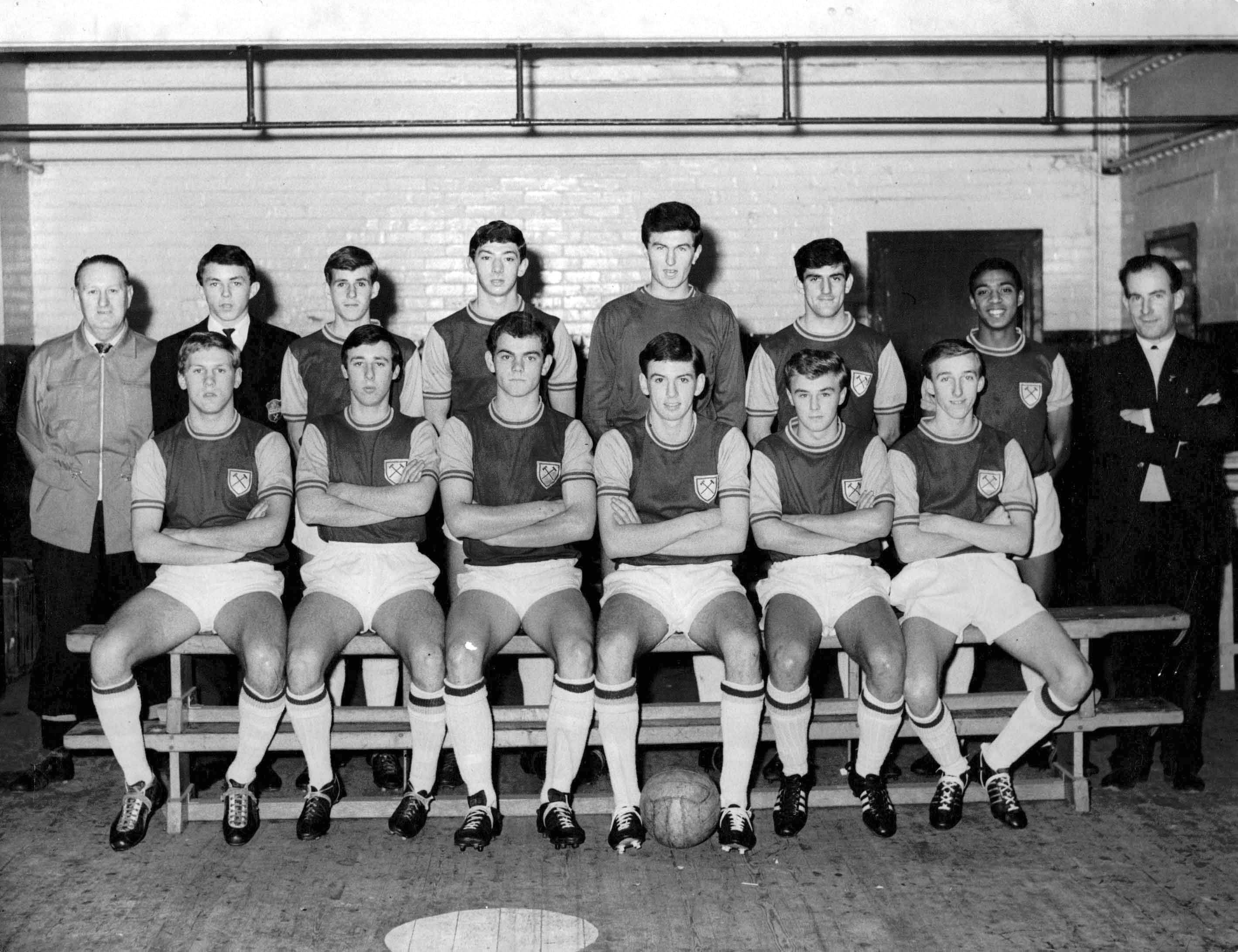
The third round saw Swindon Town, with future first-team star Don Rogers in their ranks, visit the Boleyn Ground on 11 March. Two goals from Sissons and one each from Dryden and Britt saw West Ham through 4-1.
It was another six weeks before Portsmouth hosted their West Ham counterparts in a fourth-round tie at Fratton Park. There, Pompey took the lead into the break, but a far better performance after half-time saw the Irons pull through with unanswered goals from Dryden, Sissons and Howe.
Just five days later, Aston Villa were the fifth-round visitors to Upton Park. Sissons’ opener was cancelled out, but two quickfire strikes from Britt put West Ham seemingly in control.
Villa pulled one back to set up a nervy finish, but the 6,500-strong crowd could breathe a sight of relief when Britt set up Sissons for the game’s sixth and final goal, securing the Hammers a semi-final berth.
The semi-final first-leg was against Wolverhampton Wanderers at Molineux on Saturday 18 May and resulted in a 2-2 draw, with Britt and Dawkins netting for the Hammers.
Just three days later the teams locked horns again in east London, with West Ham coming out on top 4-2, courtesy of goals from Bennett, Dryden, Britt and Sissons.
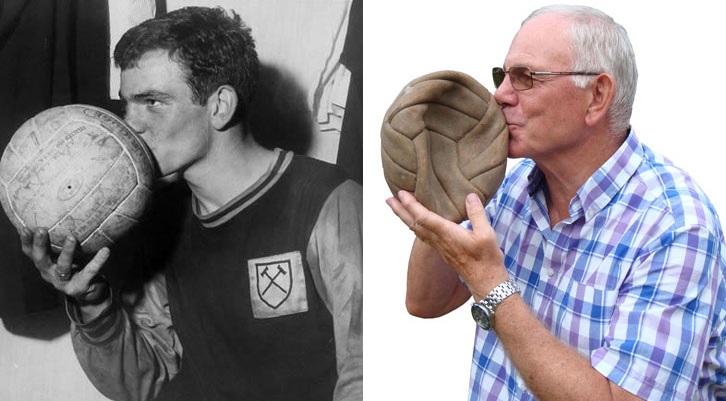
The reward was a final against Liverpool and, as it was so near to the end of the season, the first leg of this took place only two days after the semi-final second leg had been completed.
The first game was played at Anfield, with the Reds including future legendary hard man Tommy Smith as captain and running out 3-1 winners. Dryden got West Ham’s goal, but it seemed the Irons' task would be a tough one in the second leg back in east London.
Just a further two days later, only eight days after the semi-final first leg, the Boleyn Ground was the scene for an amazing game of football.
At half-time it looked all over as Liverpool had stretched their aggregate lead to 5-2, but the 13,200 in attendance were treated to a spectacular comeback as the Hammers rallied to score four unanswered goals in the second half to snatch the trophy from Smith's hands!
The star of the show was Martin Britt, who scored four of the goals, all of them headers, with Dawkins adding the other. Britt, who plundered 12 goals in West Ham's run to glory, was presented with the match ball, which he still cherishes today at the age of 79.
Of the team, all except Dryden and Archer went on to make first-team appearances. Britt appeared on 26 occasions, scoring seven goals, before being transferred to Blackburn Rovers but, unfortunately, his career was cut short by serious injury soon afterwards.
However, his four-goal FA Youth Cup final salvo will forever forge a big part of West Ham United history.
